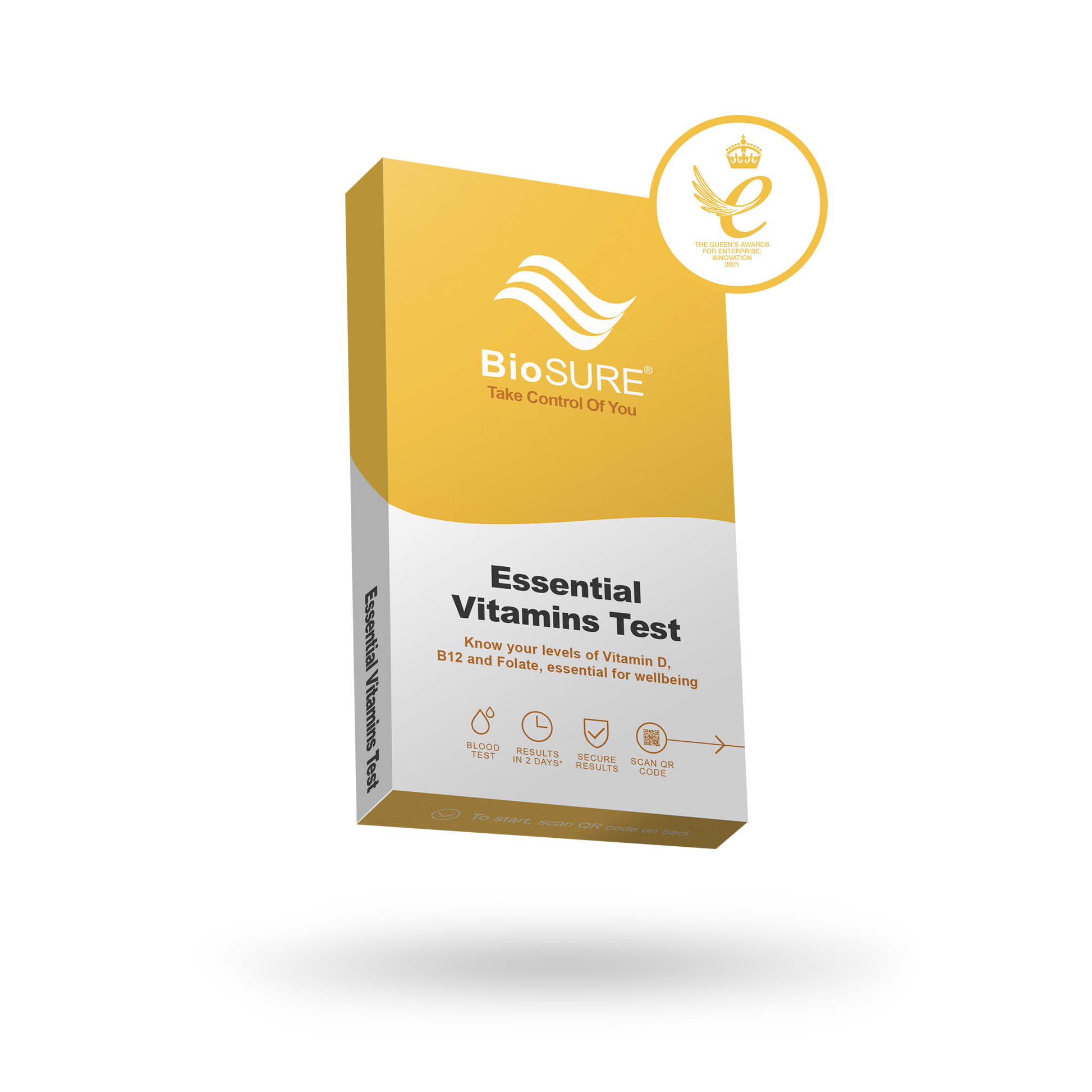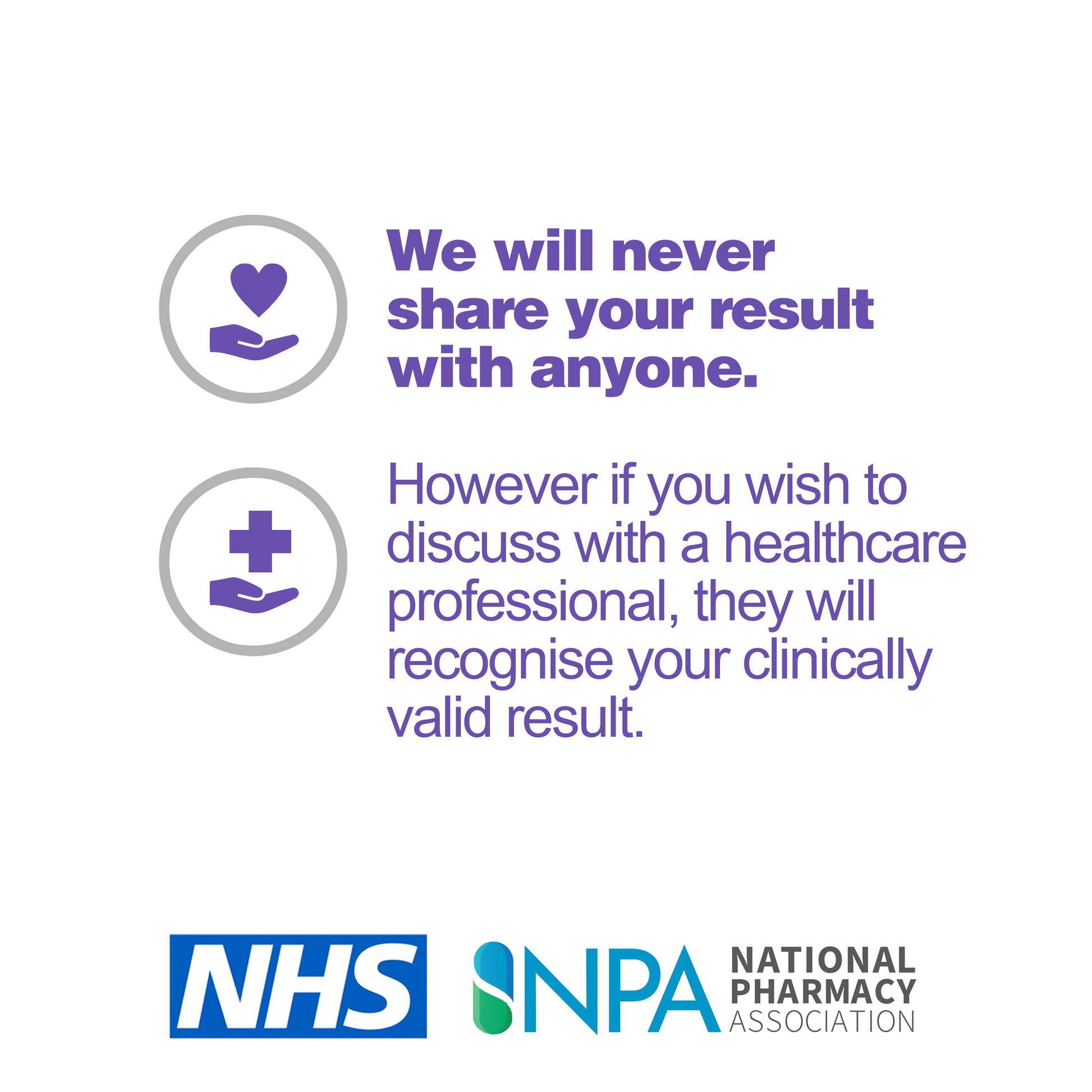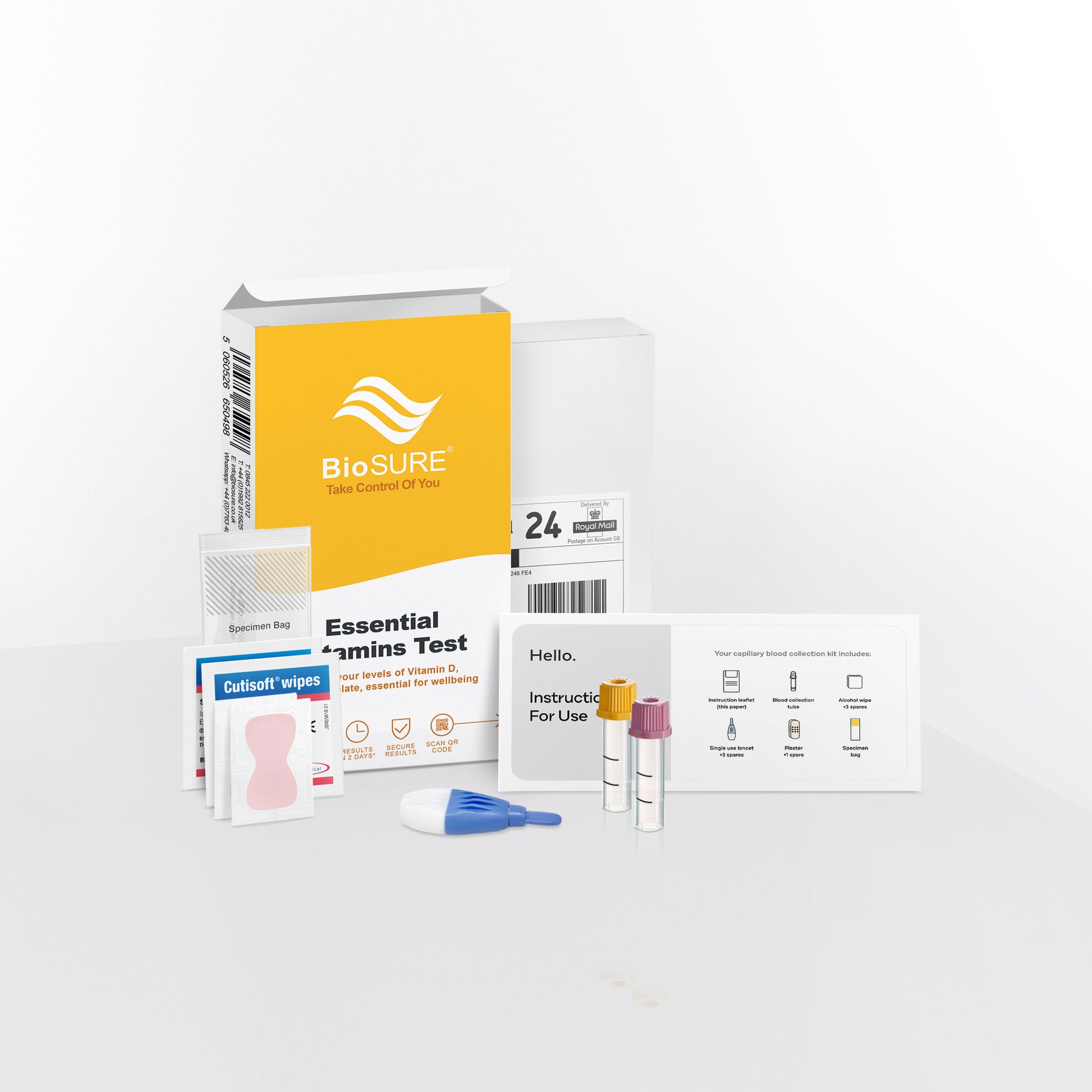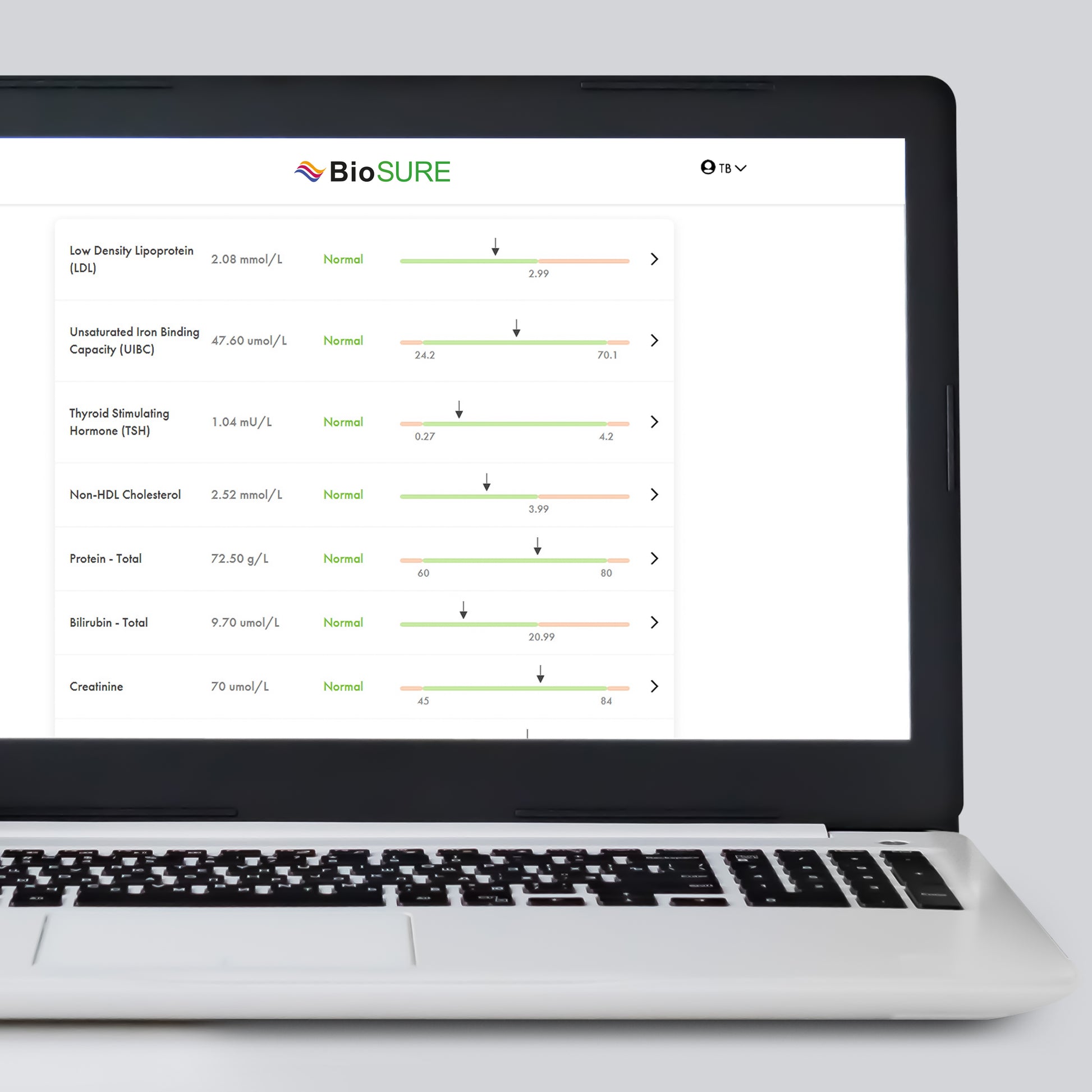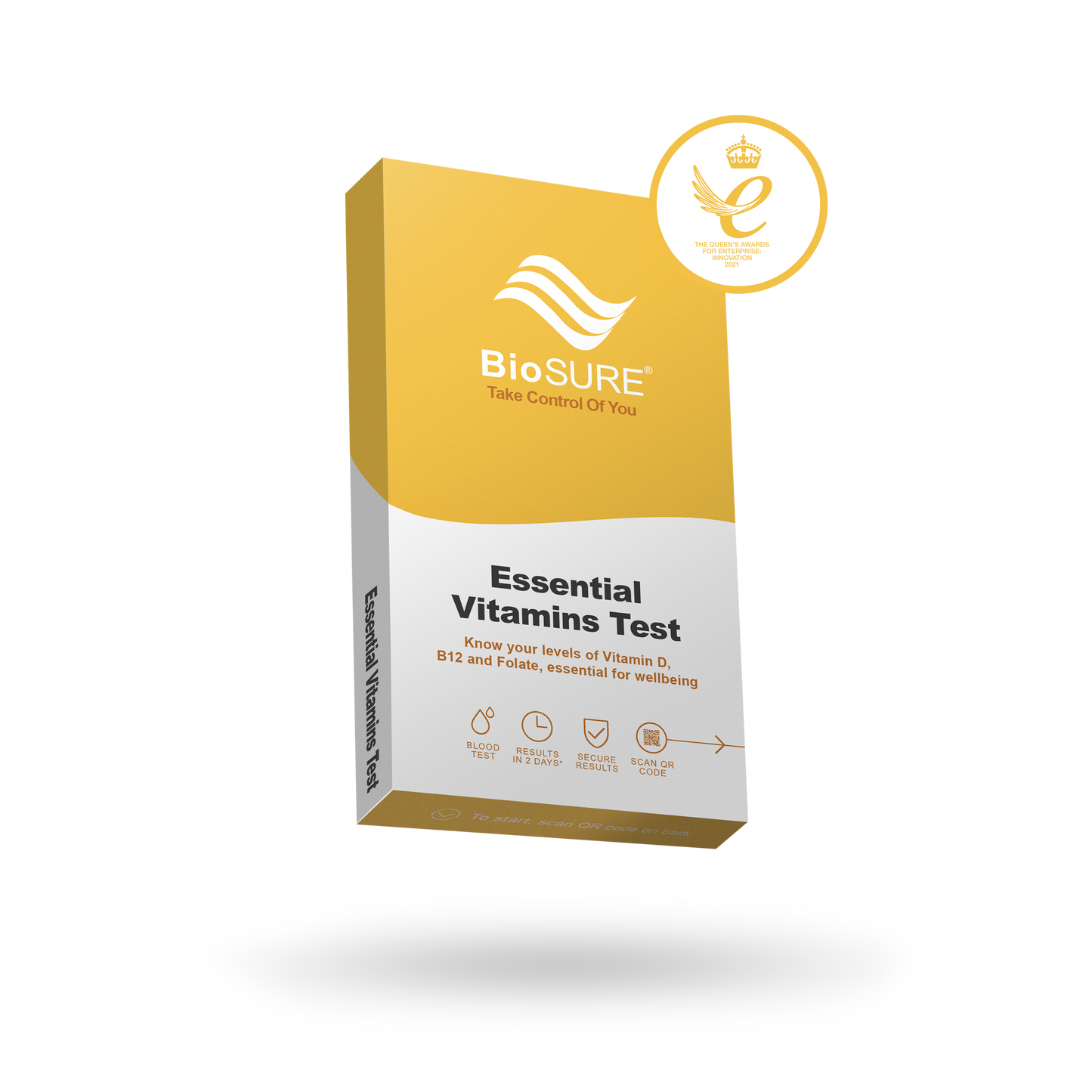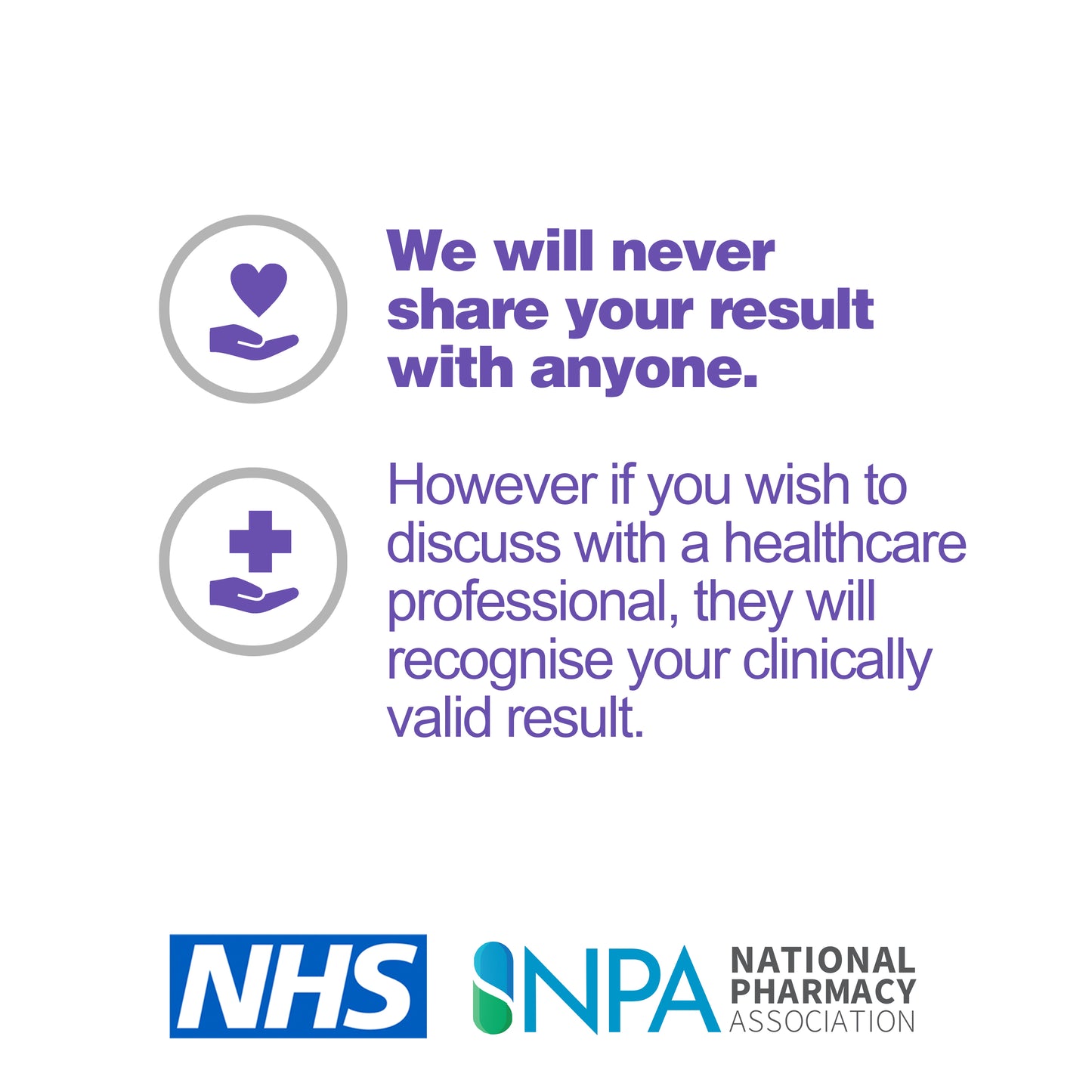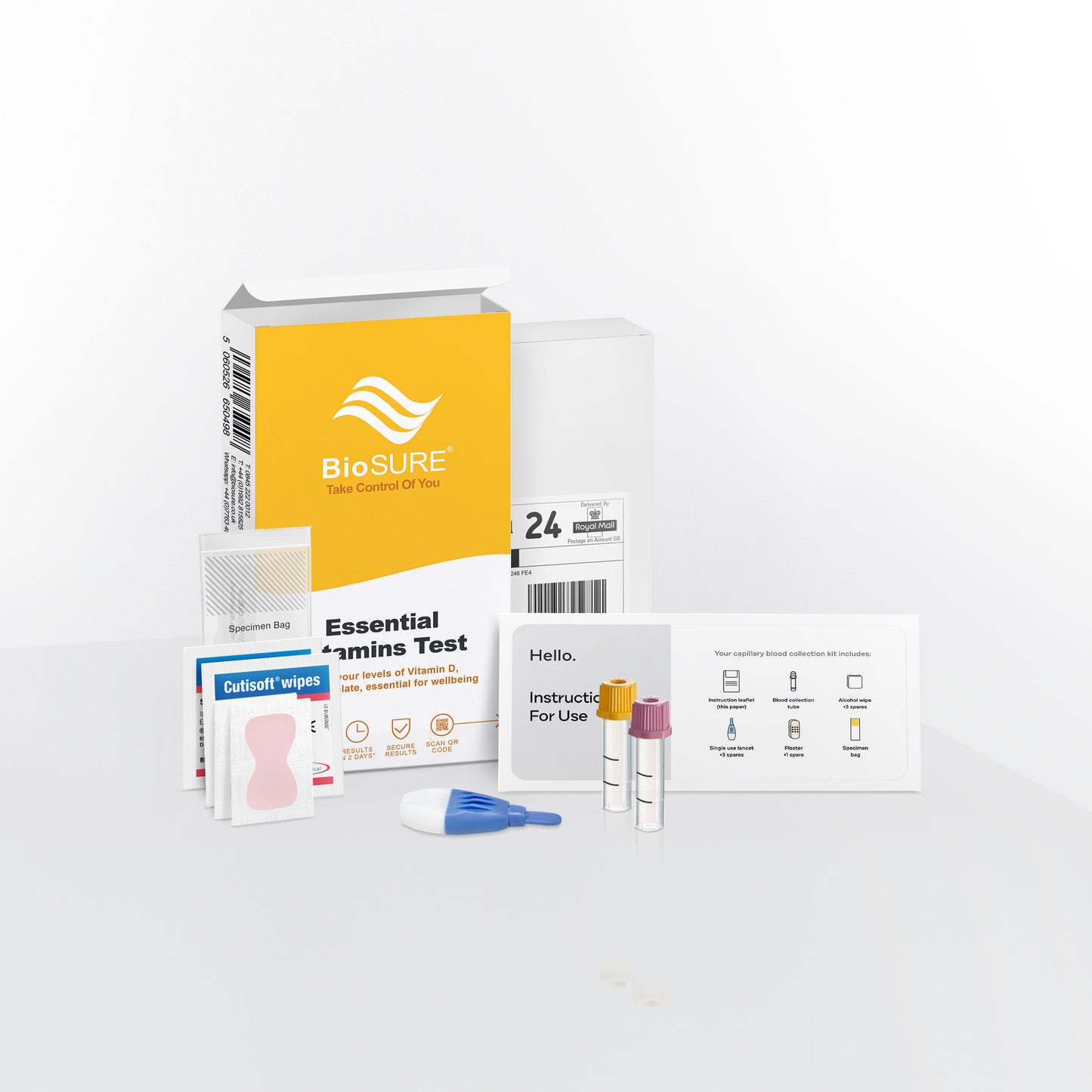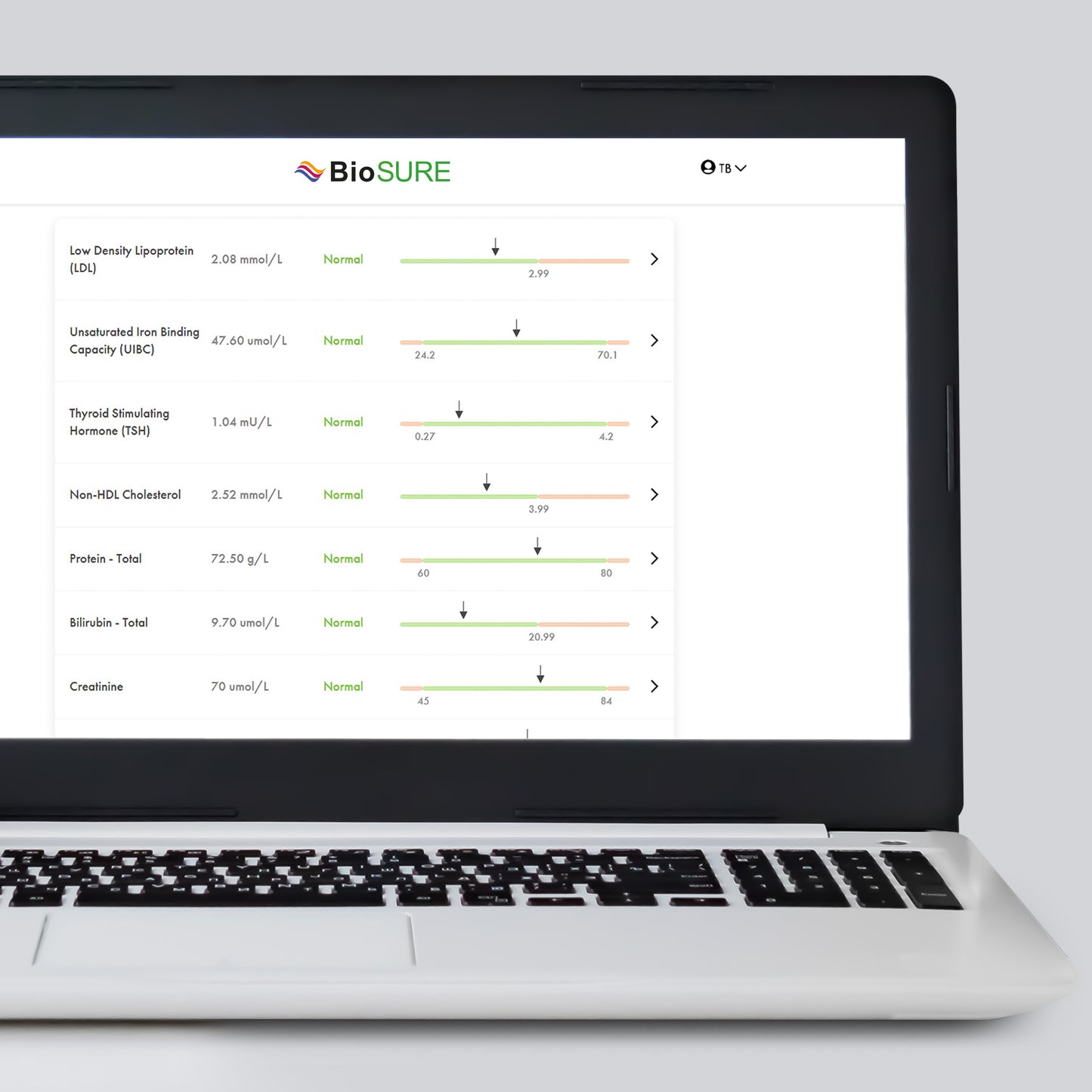BioSURE Essential Vitamins Test - Vitamin D, B12 and folate
BioSURE Essential Vitamins Test - Vitamin D, B12 and folate
Vitamin deficiencies can lead to a wide range of effects including low energy and/or fatigue, low mood, and even irritability. Know your levels of three key vitamins; Vitamin D, B12 and folate, essential for wellbeing and a healthy lifestyle.
Couldn't load pickup availability
3 Biomarkers
Fingerprick Blood Sample
Lab Test - results within 48 hours
Free Two Way Delivery Included
Why check your vitamin levels?
Understanding whether your symptoms are attributed to vitamin deficiencies, can help you to make changes to your diet and lifestyle.
This test analyses your levels of Vitamin D, B12 and folate, which are essential for your wellbeing
View full detailsThis panel checks for Vitamin D, Vitamin B12 and Folate (Vitamin B9) levels, essential for your health and wellbeing.
Deficiencies can make an enormous difference to your body and the way you feel and are usually easily rectified with supplements.
Vitamin deficiencies cause a wide range of common symptoms and conditions.
If you follow a plant-based diet, Vitamin B12 will be particularly important for you as can be difficult to intake enough through your diet.
Similarly if you don't eat enough folate rich foods, such as leafy green vegetables, nuts and beans, then knowing whether you have a folate deficiency is very important.
It is estimated that up to 25% of people living in the UK have low levels of Vitamin D by the end of the winter.
Deficiencies in these vitamins cause a wide range of problems and complications including fatigue, weakness, neurological issues and depression. Folate levels are particularly important in pregnant women.
This test analyses 3 key vitamins:
- Vitamin D (25-OH) is responsible for maintaining the strength of healthy teeth and bones. Vitamin D also helps to maintain lung and heart health and improving low mood.
- Vitamin B12 (total) plays a vital role in maintaining a healthy nervous system. This vitamin also helps to generate red blood cells which assist with carrying oxygen around the body.
- Folate (Vitamin B9) also known as folic acid, is an essential nutrient in pregnancy and helps to generate red and white blood cells.
Vitamin D (25-OH) is a fat-soluble vitamin. It is produced as a response to sun exposure in the body. Vitamin D intake can also be boosted through the consumption of certain foods or supplements.
It is responsible for maintaining strong and healthy teeth and bones. good lung and heart health and improving low mood.
Vitamin B12 is a water-soluble vitamin. It is naturally found in some foods, can be added to some foods, and is available as a dietary supplement.
Vitamin B12 plays a vital role in maintaining a healthy nervous system and generates red blood cells that carry oxygen around your body.
Folate is the natural form of vitamin B. It is a water-soluble vitamin and it's naturally found in many foods.
It is also known as folic acid and is essential in pregnancy and generates red and white blood cells in your body.
Your body makes Vitamin D when your skin is exposed to sunlight and it needs it to help regulate your body's calcium and phosphate which are needed to keep your muscles, bones and teeth healthy.
Most people make enough Vitamin D during the spring and summer, when there is plenty of sunlight but your body does not store the vitamin and so people can become deficient in the winter months when there is less sunlight and we are far more likely to be covered up (in the UK at least!)
Other conditions such as age and obesity also may make you more prone to make enough Vitamin D, plus the darker your skin is the more sun exposure you will need to make the vitamin because it contains more melanin.
Cod liver oil is one of the foods highest in Vitamin D, but oily fish such as sardines, salmon and tuna, and orange juice and dairy products are also good sources of Vitamin D in your diet. There are also a wide range of supplements available.
Most of our vitamin B12 comes from our diet and your body needs it to form red blood cells and also DNA.
Foods with high levels of vitamin B12 generally come from animal products, especially meat, eggs and milk, so if you eat a plant-based diet it is much harder to get sufficient amounts of this vitamin.
Vitamin B12 deficiency can cause anaemia, which is when your body has either fewer red blood cells or lower amounts of haemoglobin, which is what your blood cells need to carry oxygen. Symptoms include tiredness and lack of energy, mouth ulcers, disturbed vision and psychological problems including depression. You can get these symptoms from being deficient in Vitamin B12 without having anaemia.
Your body stores vitamin B12 in your liver and it is unlikely to have too much as it is water-soluble, so when you have more than you need your body can flush it out. There are certain serious health conditions that mean your vitamin B12 levels could be too high, including kidney failure, liver disease and some blood cancers.
Like vitamin B12, folate is important in making red blood cells and is also needed to make DNA and for healthy cells to grow and function. This is why it is so important during pregnancy.
Folate generally comes through your diet from dark green leafy vegetables, fruit and fruit juice (especially orange juice) and nuts beans and peas. You can also take folic acid supplements, which is the man-made form of folate. A lot of breads and cereals are also fortified with folic acid
Folate deficiency can cause megatoblastic anaemia, which causes tiredness, weakness, trouble concentrating and shortness of breath, but this is not common. Folate can also help decrease your risk from certain types of cancer, reduce your risk of cardiovascular disease and there is also evidence that people with low levels of folate are more likely to have depression and not respond as well to antidepressant medications.
Vitamin deficiencies can lead to a wide range of symptoms like low energy, fatigue, low mood, and irritability. Understanding if these symptoms are attributed to vitamin deficiencies, can help you to make informed decisions about your lifestyle and your diet.
- Fatigue
- Trouble sleeping
- Bone pain
- Bones can become thin and brittle
- Hair loss
- Muscle weakness
- Depression
- Loss of appetite
- Become more prone to illnesses
- extreme tiredness
- lack of energy
- mouth ulcers
- disturbed vision
- psychological problems including depression
- weakness
- trouble concentrating
- shortness of breath
- pins and needles
- a sore and red tongue
You can change your diet to include good sources of these vitiamins in foods, choose foods fortified with these vitamins or take vitamin supplments.
Vitamin D
- Vitamin D - Your body creates vitamin D from direct sunlight on your skin when you are outside. Good sources of Vitamin D in foods include: red meat, oily fish like salmon and mackeral as well as cod liver oil, egg yolks and fortified foods like breakfast cereals and fat spreads. There are also vitamin D supplments available if you are at risk of vitamin D deficiency.
Vitamin B12
- Good sources of Vitamin B12 include meat, fish, milk, cheese, eggs and some fortified breakfast cereals
Folate (Vitamin B9)
- Good sources of Folate (Vitamin B9) include dark green leafy vegetables like broccoli and spinach, peas, chickpeas and fortified breakfast cereals - just check the packaging for 'Folic Acid' becuase this is the manmade form of folate that is added.
Free two-way shipping is included
Standard DPD delivery to you is included in the price and your kit also includes a Royal Mail 1st Class Tracked label for you to send your sample back.
All orders received by 2pm are shipped the same day. Orders received after 2pm on a Friday will be shipped the next working day.
A kit containing everything you need is sent to an address of your choice.
You can then take a simple finger prick sample, using the lancets provided and collect the drops into the tube. You then register it on-line and post it off to the laboratory using the Royal Mail 1st Class Tracked envelope that is included with your kit.
Your full report, showing your results and how they compare with the normal reference ranges, are reported back to you by email. You will receive your result the day after the lab receives your sample.
All test results are reviewed by the in-house GPs who highlight any areas of concern of that might need further investigation and follow up with a doctor.
Your results link will be sent to you via email, so you can log in to your secure account and view your results.
Your results include your levels and where they sit against 'normal levels'. There is also a visual interpretation as a colour coded graph so they are easy for you to understand.
Your blood sample will be processed in the laboratory within 24 hours of receipt on all working days. You will receive an email with a secure link through to your account and your results as soon as they are availlable.
It is very important you scan your unique QR code when you open your kit, as this is what links your sample and your result to you. Without this we won't be able to send you your result.
Yes, your samples are processed in the same laboratories that are used by hospitals and primary care providers. All of our partner labs are UKAS and ISO accredited, which are the highest levels of accreditation.
Your BioSURE Self Test kit contains -
- Instructions for Use
- Collection tube(s)
- Alcohol wipe x 2
- Lancet x 4
- Collection tube label(s)
- Pre-paid return packaging
We advise collecting your fingerprick blood sample in the morning, especially for tests that require fasting. Return on the same day in the pre-paid packaging that is supplied with your kit.
We also advise not collecting or returning your sample on Friday, Saturday or Sunday, so the lab receives it in the best possible condition.

